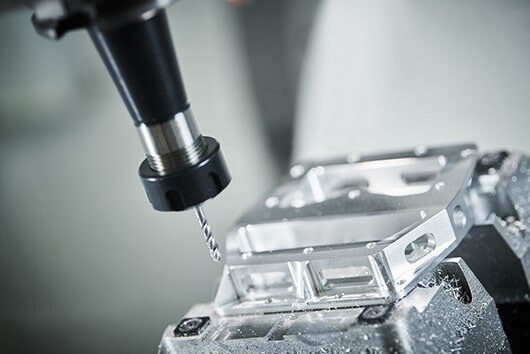Categories
Tags
-
#Microsoft
#Roku
#CBD Cartridge
#Nitrogen Compressor
#Automatic Cnc Lathe
#Condenser Expansion Machine
#Food Packaging
#wikifx
#Enzyme Powder Tosowoong
#ozone generator
#Robots on Demand
#Silicone Kitchen Utensils
#Anti-surge Flood Light
#Robotics as a Service
#jst connector production
#Elastic Pin Coupling
#china economy
#Acrylic Deoxidizer
#Rice Burger Forming
#Sintered Stone
#motorcycle speaker production
#Co2 Laser Cutting Machine
#running track
#china ballistic tiles
#laser cutting line
#Wedge Wire Screen
#stop the bleed
#hemostatic agents
#Metal Cloisonne Pins
#Gutter Sealant
#China To Costa Rica
#Latest Entertainment News
#ifak pouches
#best forex brokers
#Golf Rangefinder
#Door Hinge Hl017
#Kitchen Aluminium Plinth
#Box Panel Explosion Proof
#Kolor Sorter Optyczny
#Biodegradable Packaging
#Controlled Expansion Alloy
#hemostatic combat gauze
#pin bead mill
#cad and cam systems
#smart window sensors
#commercial safe locks
#through conduit gate valve
#Silicone Injection Molding
#Flexographic Flat Printer
#mechanical cad drawings
#lock manufacturer
#CAD software
#door and window sensors
#secure locks
#China economy news
#Current sensor core
#Sand Casting Parts
#Robots as a Service
#Wallet Carbon Fiber
#Table Lamp
#upholstery pouf
#litho flute laminator
#oem electronics toy
#china glass beads
#motorcycle testing equipment
#boarding pass
#terracotta panel cladding
#Gstarsoft Tips & Tricks
#chinese alphabet a to z
#oil lubricated guide bush
#Door Handle
#linear drive
#screw pump
#Alumina Ceramic Substrate
#led neon rope light
#cnc machining process exporters
#linear motion stage production
#veracity markets review
#neon light strip
#fbk markets review
#progressive cavity pump spare parts
#prorealtime trading review
#cad blocks download
#home security product
#cavity pump spare parts
#bulletproof tactical helmet
#pump spare parts
#bulletproof vest camo
#The Mech Touch
#saxo review
#custom neon signs
#dominion markets review
#dominion markets reRTL Group Sells Video Ad-Tech Unit SpotX to Magnite for $1.2 Billion European media giant RTL Group reached a deal to sell SpotX
#its U.S. ad-tech subsidiary
#to Magnite for $1.17 billion in cash and stock.To get more news about spotx markets review
#you can visit wikifx.com official website. Magnite said that with the acquisition of SpotX
#the combined entity will “create the largest independent [connected TV] and video advertising platform in the programmatic marketplace.” The sale of SpotX to L.A.-based Magnite
#which bills itself as the industry’s largest independent sell-side advertising platform
#is expected to close in the second quarter
#subject to subject to regulatory approvals and other usual closing conditions. “The sale of SpotX is fully in line with our strategy to concentrate on growing our European digital businesses in streaming
#advertising technology
#digital video and audio
#as well as our global content business
#Fremantle
#” RTL Group CEO Thomas Rabe said in a statement. According to Magnite
#on a combined basis with SpotX
#its CTV business would have nearly tripled revenue to $42 million in the fourth quarter of 2020 versus Magnite standalone
#representing 34% of Q4 2020 preliminary non-GAAP pro forma net revenue. Magnite said it is aiming to save more than $35 million in run-rate operating cost synergies through the SpotX deal
#with more than half of that realized within the first year of combined operations. “Sellers have been looking for a scaled independent alternative to the giant companies who dominate the CTV marketplace
#” Michael Barrett
#Magnite’s president and CEO
#said in a statement. “The combination of Magnite and SpotX will make this a reality by bringing together the best CTV technologies and teams at a critical time.” The SpotX sale price comprises $560 million (€468 million) in cash and 14.0 million shares o
#the shares issued to RTL Group and committed financing from Goldman Sachs. “As CTV flourishes and the media industry continues to turn to programmatic
#there is a huge opportunity for an independent scaled company to offer the single most comprehensive technology in the market
#” said Mike Shehan
#cofounder and CEO at SpotX. “We built SpotX with the mission of becoming the leading global video advertising platform
#and our goal is now coming to fruition with Magnite.” RTL Group acquired a 65% stake in SpotX for €107 million in 2014 and bought full ownership of the company in 2017 by acquiring the remaining shares for €123 million (which gave SpotX an enterprise val
#according to the companies). SpotX customers include A+E Networks
#Crackle Plus
#the CW Network
#Dentsu CCI
#Discovery
#Electronic Arts
#Fox Corporation
#FuboTV
#Gannett
#Newsy
#ViacomCBS’s Pluto TV
#Sling TV
#and Vudu. The Denver-based company says it “works with nearly all major OTT stakeholders” and reaches about 80% of ad-supported connected-TV viewers in the U.S.
#or 50 million households. For RTL
#advertising technology “remains a strategic priority
#” according to Rabe. The company has two ad-tech divisions: Smartclip
#part of Mediengruppe RTL Deutschland
#a provider of digital video and TV advertising solutions; and U.K.-based video technology company Yospace
#acquired in 2019
#which operates a server-side dynamic ad insertion platform for serving targeted
#personalized advertising.Goldman Sachs and LUMA Partners acted as financial advisors to Magnite and Gibson Dunn provided legal counsel. For RTL Group
#JP Morgan Securities acted as financial adviser and Davis Polk & Wardwell was legal counsel on the transaction.view
#Camouflage Bulletproof Vest
#hemorrhage control
#xsocio markets review
#fxtm review
#Overload Protection Socket
#financial translation agency
#hot sale snus oem
#Precision Cold Extrusion Part
#china sls 3d printer
#die cutting plastic recycling machine
#Fingerprint Smart Door lock
#hemostat dressing
#trading pro review
#upholstery pouf wholesaler
#oem kitchen countertop
#oem yooz vape
#Bamboo Pendant Lamps
#pipe cutting machine
#Android Board Producer
#cad software company
#smart locks with wifi
#screw pump rotor
#Progressive cavity pump
#acefxpro review
#tracked packet international
#spring forming machine
#Gstarsoft Tips
#touch lock
#woman in ancient
#chest seals
#roboforex review
#china technology news
#binomo review
#topup bigo live
#security safe & lock
#last empress of china
#forex pip calculator
#security electronic lock
#video borescope
#no deposit bonus
#Glowing Mask Glowing Glasses
#toploader holder
#compression forming machine
#motorized blinds
#TV remote control
#fca regulated forex brokers
#Filter Water Filter
#Carburetor For Nissan
#Wooden Box Of Tea
#Undercarriage Parts
#cosmetic puff producer
#JERNANO
#power window switch
#medical kits
#forex global rankings
#top selling binocular
#High Purity Nmn Powder
#Off Grid Hybrid
#aluminium cnc machining parts
#Adult Electric Bike
#Bulletproof Helmet
#Gaming Table
#Flange Metallic Gasket
#Runner Mold Design
#Drone Simulator Company
#Electric Cable
#linear sliding table
#sof ifak
#forex scammer list south africa
#new chinese movies
#obtain cysec license brokers
#precision medical machining
#screw pump stator
#WikiBit
#rapid prototyping service
#Industrial Videoscope
#international business
#crypto exchange scams
#531-91-9
#Quartz Stone Factory
#horizontal packing machine
Archives
Recent Videos
Let's talk!
An Informational Brief on Polymer Machining
-
An Informational Brief on Polymer Machining
Polytetrafluoroethylene (PTFE) is a fluorocarbon-based polymer, known more commonly as Dupont's brand name Teflon®. The enhanced electrical properties, high-temperature capabilities and chemical resistances of this thermoplastic make it a favorite for backup rings, coatings, distribution valves, electrical insulation applications and more.To get more news about machining teflon, you can visit runsom.com official website.
Our latest machining guide discusses what goes into machining Teflon and how its considerations differ from other manufacturing options such as metal machining, injection molding, and 3D printing.Read on to learn more about Teflon's machining, applications and properties in AIP's informational polymer brief below, starting with the difference between working with a thermoset and a thermoplastic.
All polymers can more or less be divided into two categories: thermoplastics and thermosets. The main difference between them is how they react to heat. Thermoplastics like Teflon, for example, melt in heat, while thermosets remain "set" once they're formed. Understanding the technical distinction between these types of materials is essential to CNC machining them properly.
What type of thermoplastic is Teflon in particular? PTFE is a fluoropolymer, making it a semi-crystalline thermoplastic. As a fluoropolymer, PTFE possesses an inherent high resistance to solvents, acids and bases.Properties & Grades of Machined Teflon
Teflon has excellent electric stability in a wide range of conditions and environments, and its coatings are popular in the aerospace sector. Offering excellent chemical resistance and sliding properties, PTFE finds many applications in seals, housings, linings and bearings. Teflon also maintains very good UV resistance, hot water resistance and electrical insulation at higher temperatures.Unfilled PTFE is chemically inert and has the highest physical and electrical insulation properties of any Teflon grade. Mechanical grade PTFE is often made up of reground PTFE and exists as a cost-effective alternative for industries that don't require high purity materials while providing superior compressive strength and wear resistance to virgin Teflon.
There are several different modified PTFE materials available with unique properties. Many of these modified grades offer greatly reduced deformation percentages under load, as well as a lower coefficient of friction. These include glass-filled, nanotube, synthetic mica and carbon-filled grades. Teflon (PTFE) is more commonly used as an additive to numerous other base polymers in order to provide reduced friction and wear properties.

